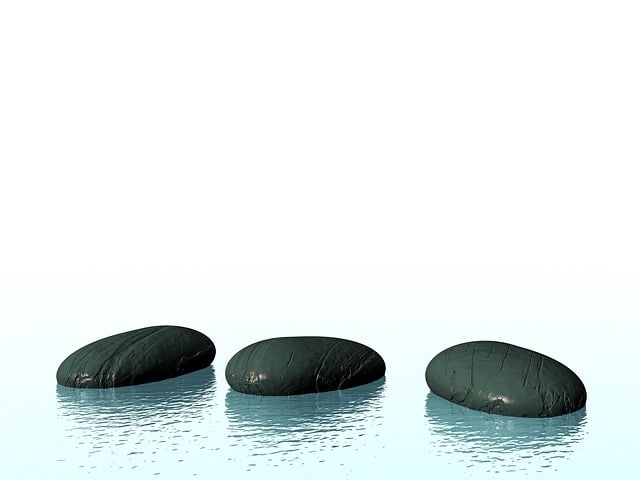Cold plunging, or cold water therapy, is a powerful tool for managing stress and anxiety. Immersion in ice-cold water triggers physiological responses that release endorphins, slow heart rates, and reduce cortisol levels, leading to feelings of relaxation and calmness. This ancient practice has gained popularity as a modern approach to enhance mental well-being, with regular cold exposures promoting anxiety reduction and overall relaxation. Incorporate short immersions in your daily routine, such as cold showers or ice baths, to reap the benefits of cold plunge for stress and anxiety relief.
Discover the powerful benefits of cold plunges in reducing stress and anxiety. In this article, we explore how cold water therapy can transform your mental health. From understanding the concept to delving into the science behind its effectiveness, we provide a comprehensive guide. Learn practical ways to incorporate cold plunges into your routine for instant calmness and long-lasting relaxation. Read real-life success stories of individuals who have found relief from anxiety through this ancient practice, now backed by modern research.
Understanding Cold Plunges and Their Impact on Stress and Anxiety
Cold plunges, also known as cold water therapy or cryotherapy, involve briefly exposing oneself to extremely cold temperatures, typically through immersing in ice-cold water. This practice has gained popularity for its potential to offer a wide range of health benefits, including significant effects on stress and anxiety reduction. The sudden cold exposure triggers a series of physiological responses in the body that have been shown to promote relaxation and calmness.
When you take a cold plunge, your body temperature drops rapidly, leading to constricted blood vessels. This vasoconstriction reduces blood flow to extremities, causing the heart rate to slow down and triggering the release of endorphins, our natural mood elevators. The calming effects of cold water immersion can help lower cortisol levels, often referred to as the stress hormone, thereby reducing feelings of anxiety and promoting mental well-being. Additionally, the mental challenge of enduring a cold plunge can act as a form of mindfulness practice, helping individuals focus on the present moment and detach from stressful thoughts.
The Science Behind Cold Water Therapy for Mental Health
Cold water therapy, or cold plunging, has gained attention in recent years as an alternative method for improving mental well-being, particularly in managing stress and anxiety. The science behind this practice suggests that exposing oneself to cold water can trigger a series of physiological responses that lead to significant mental health benefits. When you immerse yourself in a cold plunge, whether it’s a cold shower, ice bath, or even a quick dip in a cold lake, your body undergoes several changes.
One of the key aspects is the release of stress hormones like cortisol, which is often elevated during stressful situations. Cold therapy can help reduce these levels by stimulating the release of endorphins, our body’s natural ‘feel-good’ chemicals. This process promotes relaxation and a sense of calm. Additionally, cold water immersion has been linked to improved blood circulation, which can enhance oxygen and nutrient delivery to the brain, contributing to better cognitive function and a more positive mindset. The calming effects of cold plunges are supported by various studies, indicating that this ancient practice could be a powerful tool in our modern quest for stress relief and anxiety management.
Practical Ways to Incorporate Cold Plunges into Your Routine
Incorporating cold plunges into your daily routine is easier than you think and can offer significant benefits for stress and anxiety reduction. Start with short immersions, even just a few minutes under cold water, and gradually increase duration as comfort allows. You can take a cold shower, dive into an ice-cold lake or ocean, or try a cold tub—the key is to expose yourself to chilly temperatures consistently. For those hesitant to take the plunge directly, beginning with cooling down your face or feet in cold water can be a gentle introduction to cold therapy.
Create a morning ritual by starting your day with a quick cold shower, or wind down after a long day by soaking in an ice bath. Combining this practice with mindfulness techniques while submerged can enhance the calming effects. Additionally, keeping a log to track your progress and reflect on how each cold plunge session impacts your mental state can be motivating and insightful. Remember, consistency is key when exploring the benefits of cold water therapy for mental health; regular exposure to cold plunges may be just what you need to reduce anxiety and promote overall relaxation.
Real-Life Testimonies: Success Stories of Cold Exposure for Anxiety Reduction
Many folks are turning to the ancient practice of cold plunge for stress and anxiety relief, and their success stories are inspiring. Cold water therapy for mental health has gained significant attention in recent years, with numerous individuals reporting remarkable improvements in managing their anxiety. The benefits of cold plunges for stress relief are becoming widely recognized, leading many to incorporate this simple yet powerful technique into their self-care routines.
Cold exposure for anxiety reduction has shown promising results, as the calming effects of cold water immersion can help regulate emotional responses and promote relaxation. Real-life testimonials abound, with people sharing how these brief but intense experiences have transformed their mental well-being. From reducing feelings of tension and stress to promoting a deeper sense of calm, cold plunges are being hailed as a game-changer in the realm of stress management.
Cold plunging offers a simple yet powerful tool for managing stress and anxiety through cold water therapy. By incorporating this practice into your routine, you can harness the calming effects of cold exposure, which have been scientifically proven to enhance mental health. Whether it’s a quick dip in an ice bath or a refreshing shower, these methods provide an accessible way to reduce stress hormones and promote relaxation. Real-life testimonies highlight the effectiveness of cold plunges for anxiety reduction, making it a game-changer for those seeking natural remedies to improve their mental well-being.
